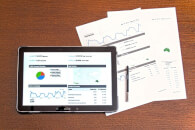Data Analysis Job Prospects for Nigerians
Job Prospects for Nigerians in Data Analysis
The field of data analysis offers immense opportunities for Nigerians, driven by the increasing reliance on data-driven decision-making across industries. As businesses and organizations aim to leverage insights from vast data sets, the demand for skilled data analysts is rapidly growing both in Nigeria and globally.
Why Data Analysis Is a Lucrative Career for Nigerians
- Expanding Digital Economy
- Nigeria’s tech sector is booming, with startups, fintech, and e-commerce companies relying heavily on data to optimize operations and target customers.
- Businesses across industries like finance, healthcare, education, and agriculture need data analysts to enhance their performance.
- Global Remote Opportunities
- Data analysis is a globally relevant skill, enabling Nigerians to access remote job opportunities with competitive salaries in international markets.
- Versatility Across Industries
- Data analysts are needed in almost every sector, from banking and manufacturing to government and entertainment.
- High Demand for Data Skills
- The global talent gap in data-related fields means Nigerians with relevant skills and certifications are well-positioned for lucrative roles.
Job Roles in Data Analysis
Nigerians pursuing data analysis can explore the following roles:
- Data Analyst
- Interpreting data to generate actionable insights.
- Salary range: ₦150,000–₦500,000/month in Nigeria; $50,000–$80,000/year internationally.
- Business Intelligence Analyst
- Analyzing business performance using dashboards and reports.
- Data Scientist
- Advanced data analysis using machine learning and statistical techniques.
- Financial Analyst
- Using data to assess financial performance and make forecasts.
- Operations Analyst
- Optimizing processes using data-driven approaches.
- Market Research Analyst
- Studying market trends and consumer behavior using data.
- Big Data Analyst
- Working with large, complex data sets to uncover trends and patterns.
- Data Visualization Specialist
- Creating compelling visual representations of data for stakeholders.


Skills and Qualifications Needed
1. Educational Requirements
- A degree in Statistics, Mathematics, Computer Science, Economics, or a related field is often required.
- Some employers prioritize skills and experience over formal degrees, especially for freelance or remote roles.
2. Technical Skills
- Data Analysis Tools: Excel, SQL, Python, R.
- Visualization Tools: Power BI, Tableau, Google Data Studio.
- Statistical and Analytical Skills: Understanding of statistical methods and data modeling.
- Database Knowledge: Working with relational databases and big data frameworks.
3. Certifications
- Google Data Analytics Professional Certificate (beginner-friendly).
- Microsoft Certified: Data Analyst Associate.
- Tableau Desktop Specialist Certification.
- IBM Data Science Professional Certificate.
- AWS Data Analytics Certification (for cloud-related roles).
4. Soft Skills
- Problem-solving and critical thinking.
- Communication skills for presenting findings.
- Attention to detail and time management.
Opportunities in Nigeria
1. Local Companies
- Fintech companies like Flutterwave, Paystack, and Interswitch.
- Banks and financial institutions such as GTBank and Access Bank.
- Telecommunications companies like MTN and Airtel.
- E-commerce platforms like Jumia and Konga.
2. Government and NGOs
- Government agencies such as the National Bureau of Statistics (NBS).
- NGOs and international organizations conducting research and program evaluations.
3. Startups and SMEs
- Nigeria’s vibrant startup ecosystem offers numerous opportunities for data analysts to work on innovative projects.
4. Freelancing and Remote Work
- Platforms like Upwork, Fiverr, and Toptal allow Nigerians to connect with international clients seeking data analysis expertise.
Global Opportunities
- Remote Work
- Many international companies hire remote data analysts, making it possible for Nigerians to earn competitive salaries while working from home.
- In-Demand Markets
- United States: Average salary of $70,000–$90,000/year for entry-level roles.
- Canada: Salaries range from CAD 60,000–CAD 85,000/year.
- United Kingdom: Average salary of £30,000–£50,000/year.
- Tech Hubs
- Opportunities abound in tech hubs like Silicon Valley, Berlin, and Bangalore for skilled data analysts.
Challenges in the Nigerian Context
- Limited Local Awareness
- Many companies in Nigeria are yet to fully adopt data-driven practices, limiting local opportunities.
- Access to Training
- High costs of certifications and access to advanced training programs may be barriers for some Nigerians.
- Infrastructure Issues
- Inconsistent electricity and internet connectivity can hinder productivity, especially for remote workers.
How to Build a Career in Data Analysis
- Start with Free Resources
- Use platforms like Coursera, DataCamp, and Khan Academy to learn foundational skills.
- Build a Portfolio
- Work on real-world projects using datasets from platforms like Kaggle to showcase your skills.
- Network with Professionals
- Join communities like Data Science Nigeria and participate in hackathons or meetups.
- Leverage Online Platforms
- Create profiles on LinkedIn and GitHub to display your skills and connect with potential employers.
Where can I really get remote jobs as a data analyst in Nigeria …
Conclusion
Data analysis offers excellent job prospects for Nigerians, both locally and globally. With the right skills, certifications, and networking strategies, Nigerians can secure high-paying roles in various industries. The field’s versatility and growth potential make it an attractive career choice for individuals passionate about data-driven problem-solving.